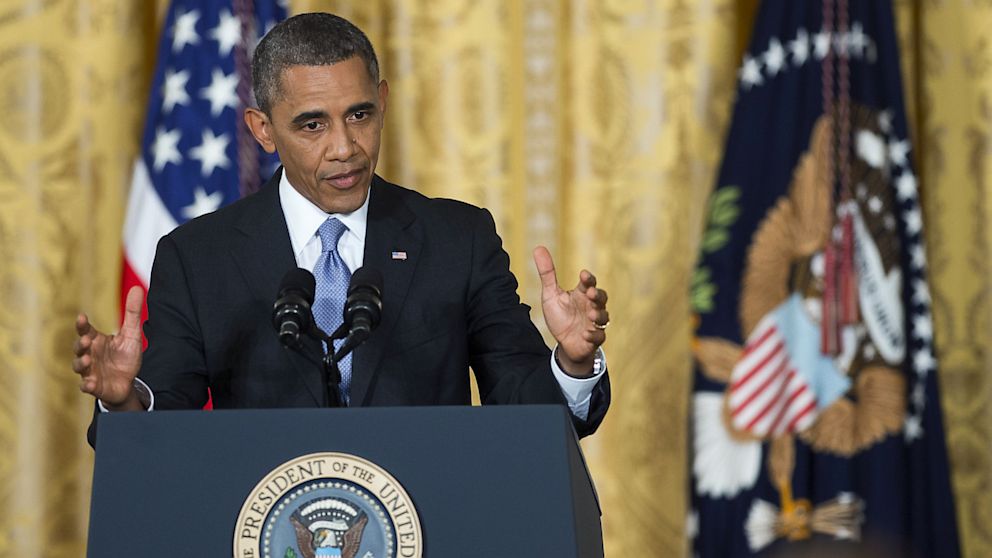President Barack Obama, in contrast with administration spokespeople, has acknowledged a split with Israel over Iran’s nuclear program. The U.S. president said Washington and Jerusalem were in dispute over Iran’s nuclear program and the effectiveness of additional international sanctions on Teheran. Obama said he opposed the lobbying of Israeli Prime Minister Binyamin Netanyahu against a permanent nuclear accord by the P5+1 countries with Iran.
“Now, I don’t want to be coy,” Obama said. “The prime minister and I have a very real difference around Iran, Iran sanctions.”
At a news conference on Feb. 9, Obama said his opposition to additional sanctions on Iran was supported by British Prime Minister David Cameron and German Chancellor Angela Merkel. The president said he and other Western leaders wanted a nuclear agreement with Iran within weeks.
“If we can’t get a deal, then we’ll have to make a set of decisions, and, as I’ve said to Congress, I’ll be the first one to work with them to apply even stronger measures against Iran,” Obama said.
The president’s remarks contrasted with those of Vice President Joseph Biden. On Dec. 6, 2014, Biden told the Brookings Institution that Jerusalem and Washington were in close coordination regarding negotiations with Iran.
“We have been in constant, unrelenting contact with our friends in Israeli and continue to do so, just as Israeli has been absolutely candid with us when they have tactical differences,” Biden said. “That’s what friends do because we have no difference in our strategic perspective.”
But Obama said he was determined to reach a diplomatic resolution with Teheran. The president, disagreeing with leading members of Congress, said Iran has rolled back its nuclear program since the interim agreement with P5+1 in November 2013.
“One of my major concerns all along that is becoming more crystal clear to me, is that we are, instead of preventing proliferation, we are managing proliferation,” Sen. Robert Menendez, the ranking Democrat of the Senate Foreign Relations Commitee, said on Feb. 10.
The president also reiterated his opposition to Netanyahu’s planned address to Congress. Obama said he would not meet Netanyahu during his forthcoming visit, scheduled on March 3, two weeks before parliamentary elections in Israel.
“This isn’t a relationship founded on affinity between the Labor Party and the Democratic Party, or Likud and the Republican Party,” Obama said.
Netanyahu agreed with Obama that Jerusalem and Washington were far apart over Teheran. He said the proposed Western accord with Teheran, expected to be signed before the March 24 deadline, would result in a nuclear Iran.
“But we do have today a profound disagreement with the United States administration and the rest of the P5+1 over the offer that has been made to Iran,” Netanyahu said on Feb. 10. “This offer would enable Iran to threaten Israel’s survival.”









